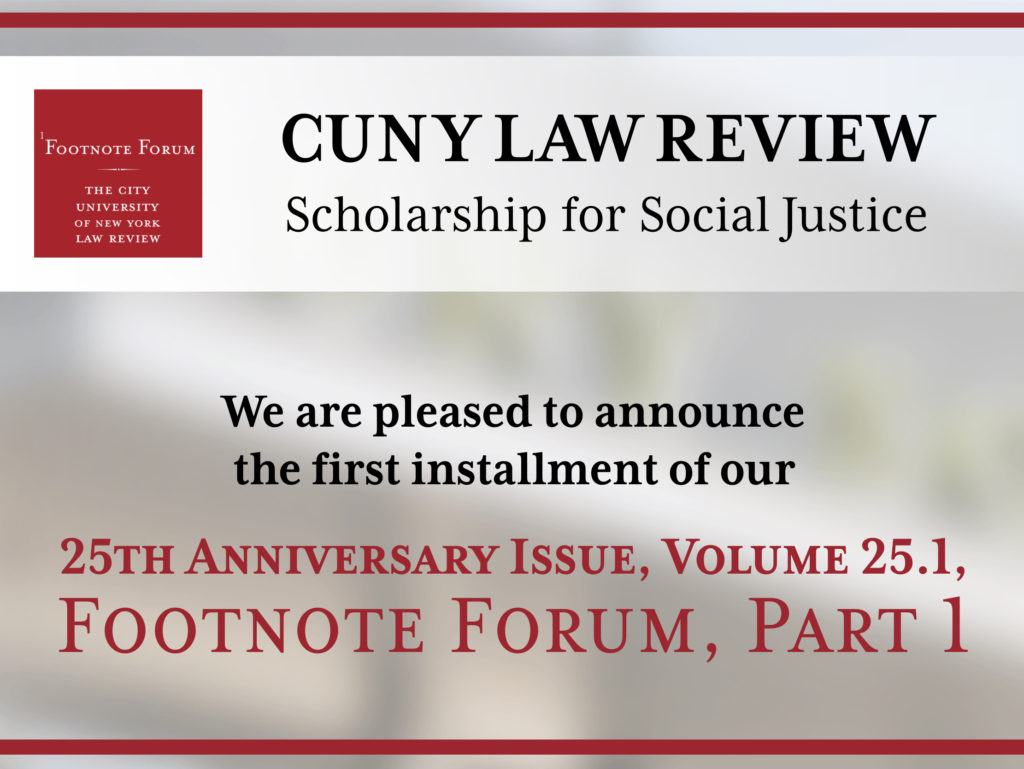
We are excited to publish Volume 25.1, Footnote Forum, Part 1. This installment features David Campbell, a former political prisoner, who discusses what “defunding the police” and “reinvesting in communities” could mean if reinvestment took the form of paying incarcerated workers suitable wages. Professor Steve Zeidman, Director of the Defenders Clinic at CUNY School of Law, writes on the notion of whether prosecutors can actually be progressive.
Footnote Forum exists to challenge our assumptions about legal scholarship. For Volume 25.1, we invite readers to consider the value of lived experiences. What can the lives of those directly impacted by the criminal legal system teach us, especially when they have no access to databases normally used for legal research? Does this perspective provide a fuller understanding of the law, and is that valuable for scholarship?
– Natasha Bynum and Colby Williams, Footnote Forum Editors
Footnote Forum is publishing Parts 2 and 3 in December 2021 and February 2022. The full journal is available at CUNY Academic Works. Please see below for individual articles:
Footnote Forum, Part 1
Editors’ Note by Natasha Bynum and Colby Williams
Virtuous Prosecutors? by Steven Zeidman
Decarceration Means Funding the Incarcerated by David Campbell
Q&A with David Campbell by David Campbell
